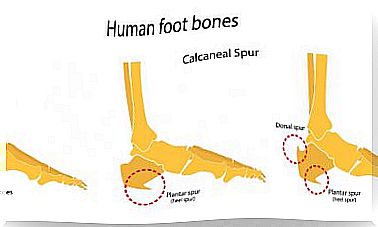How Diabetes Affects The Digestive System
Diabetes Mellitus (DM) is one of the most prevalent diseases worldwide. This metabolic problem has two variants, type 1 DM and type 2 DM. In both cases, there are a series of digestive disorders that you must know to prevent them.

Diabetes is a multisystemic disease, in which many organs are affected, among them are those of the gastrointestinal tract. The effects of diabetes on the digestive system worsen with age. As well as the duration of the disease and the existence of peripheral neuropathy. Next, we will talk about some of these gastrointestinal effects.
Diabetes mellitus (DM) is one of the most prevalent diseases worldwide. This metabolic problem has two variants, type 1 DM and type 2 DM. Type 2 diabetes is the most prevalent form. It is due to insulin resistance by the body’s cells.
This causes hyperinsulinemia and the pancreas tries to compensate for this resistance. Next, the organ is exhausted since it cannot continue with that secretion rhythm.
Type 1 diabetes develops because the beta cells of the pancreas, responsible for the production of insulin, are not able to produce this hormone. The underlying reasons for this condition are autoimmune.
Effects of diabetes on the digestive system

Some of the possible gastrointestinal manifestations that can be a cause of diabetes are the following:
- Diarrhea.
- Fecal incontinence
- Heartburn, heartburn.
- Dyspepsia; in other words, discomfort and heavy digestions.
Likewise, some of the drugs used in the treatment can cause this type of symptomatology. Drugs such as metformin can cause or intensify diarrhea and fecal incontinence. This is one of the most widely used medications to treat the problem.
Slower digestive speed
Gastroparesis, also called delayed gastric emptying, is a disorder that slows the movement of food from the stomach to the small intestine. It consists of the main complication of diabetes to the digestive system.
Gastric motility alterations are usually due mainly to impaired relaxation of the gastric fundus. They can also be caused by some changes in one’s mobility. Pylorus-spasm can be observed in many cases, which contributes to impaired gastric emptying.
This condition is more common in women and some of its most common symptoms are:
- Weightloss.
- Nausea and vomiting
- Early gastric fullness.
- Alterations in gastric emptying.
In order to combat this condition, it is very important to eat a planned, varied and balanced diet. Always following the recommendations of a specialist, you can achieve a good nutritional status.
In this way, by maintaining a balanced diet, the success of hypoglycemic therapy will be greater. Also, possible gastric symptoms will be reduced.
The problem of chronic diarrhea
The prevalence of chronic diarrhea in patients with diabetes is variable. Generally, it affects middle-aged people, mostly men, who have poor glycemic control. The episodes are usually nocturnal and not painful. It is important to differentiate them from fecal incontinence, a very recurrent disorder in people with diabetes.
The causes of this condition appear to be related to a bacterial overpopulation. This altered microbiota or intestinal flora causes damage to the intestinal mucosa and poor absorption of nutrients.
This can cause diarrhea. Again, some diabetes drugs, such as metformin, can cause reductions in the absorption of bile salts. Aspect that contributes to the effect of diabetes on the digestive system.
Autonomic neuropathy and gastric conditions


Likewise, a common condition in people with diabetes is neuropathy . Several studies have shown that a disease such as diabetes can cause a severe decrease in the density of neurons, causing direct nerve damage.
In addition, it is believed that the disease can also affect and damage some small caliber nerve branches. The vagus nerve is a nerve that plays a very important role in digestion and the movement of the viscera. Disorders in its functioning can lead to poor motility of the digestive tract.
This type of damage to the sympathetic nervous system, characteristics of diabetes, largely explains the set of digestive disorders that appear in the disease. And there is a close relationship between the nervous system and the digestive system.
That is why a healthy lifestyle, in which exercise and diet play an essential role, will help control the digestive symptoms derived from diabetes. Once again, the importance of healthy habits in the control of this disease is observed.









